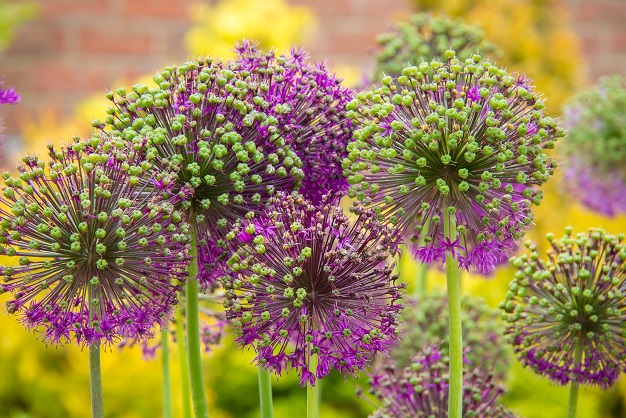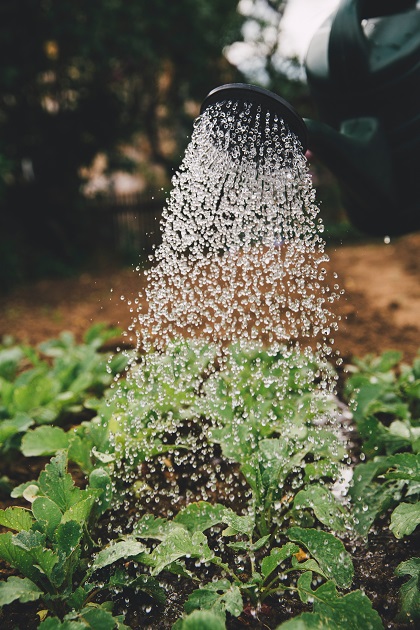Why 2020 must be the year we change for the sake of our Special Needs children
We have reduced our central heating thermostat by 1 degree and will look to reduce it further in stages. Jumpers are lovely, we should wear them more when it’s colder.
02 JANUARY 2020 · 11:20 CET

We have 10 years to change, maybe a little more, maybe a little less… 10 years to change the way we live if we are to avoid the start of a catastrophic climate change chain-reaction that will be beyond human ability to stop. Has that got your attention?
I hope so, and so do the overwhelming majority of scientists who have signed up to the Intergovernmental Panel on Climate Change report that provides this stark warning. As climate crisis campaigner Greta Thunberg has reminded us, many times, our house is on fire and we need to do something about it. You can read the report and the science behind it here.
We need to change, we must change… either we choose to change or change will happen to us. There is no scenario where change doesn’t happen, the only question is whether we voluntarily choose to change while there is still time, and time is running out, or whether we leave it too late and much harsher change happens to us, and to our children.
Many of us with children with special needs fear change, our children fear change, they find it really hard, so all of this talk of change is unsettling, scary even. It should be. The consequences of not changing our way of life are far worse. If we want a world for our children to live in, a future for them that is safe, we need to change and help them to change, now.
If you are thinking “What difference does it make if I and my family change, what about everyone else, what about India/China/USA etc?”, I get your point of view. But everyone has to change and it might as well start with us. Our individual changes make a tiny difference, but collectively that difference is bigger and the message it gives out is stronger. A 15-year-old Swedish schoolgirl might have asked herself “What difference does it make if I protest about the climate crisis, and school strike?” but Greta Thunberg still went ahead, and she is now impacting the views of the world.
So, what changes do we all need to make? Some are smaller, some are larger. Some might seem easier for you to do, some will take real sacrifice. Some will be possible for your family, some will not be possible, and when I say ‘possible’ I mean ‘possible’ not ‘convenient’… many of these changes are not convenient at all, they require serious changes to our lifestyles, but they are absolutely necessary if we are to hand our children a planet they can live on safely.
Here’s just a few of the changes we can make and how me and my family are going to change what we do, what our family does, in 2020 to be a part of responding to the climate crisis for our all of children, especially our children with special needs.
Cutting out red meat
Red meat is a key driver of the climate crisis globally. Large areas of forest are cleared for livestock. Huge quantities of livestock create massive amounts of methane and CO2 greenhouse gasses, all of which is catastrophic for the environment. We have to cut red meat out of our diet.
Our family: Phoebe has already become vegetarian. The rest of us will run down our freezer stocks of red meat and will not purchase any more. Once our freezer stocks are used we will have switched to poultry and fish only. In time we may be able to make further changes.
Making changes to our travel
Jetting around the planet to exotic destinations has to end, the planet cannot sustain it. Several holidays or weekend trips a year is killing our planet, we can’t carry on like this. Our reliance on petrol/diesel powered cars is also incredibly harmful and toxic, not just for the planet as a whole but for our health and the health of our families. We have to think smarter, be smarter about how we travel, using public transport whenever possible.
Our family: We’ve not had any overseas holidays for years, but several of us have been on overseas trips either for work or on mission. We have to seriously consider the impact of these trips, reduce or stop them entirely, or think about different ways to get there and back. The next time Clare’s car reaches the point where it needs replacing, it will be an electric one. I travel a lot with work so I will be looking at how I can reduce those trips as well as switching to public transport more often. My next car change will need to be a hybrid or electric car too.
Reduce, reuse, recycle
We’ve been challenged by programmes like the BBC’s ‘Blue Planet’ with Sir David Attenborough, and ‘War On Plastic’ with Hugh Fearnley Whittingstall and Anita Rani, to reduce our plastic footprint. The same goes for reducing and recycling generally. Packaging is a huge problem and we have to start using less and recycling more.
Our family: We’ve already started buying loose fruit and veg and will do as much of this as we can in 2020. We’re looking for places that sell loose produce such as pasta, rice, tea and coffee, even olive oil. Using our own packaging over and over again will drastically reduce what goes in our recycling bin, and importantly what goes in landfill, either here or overseas.

Switching to a greener power tariff
Ideally, we should all be switching to house fitted solar and wind turbine power production for our homes, however for most people this is still unaffordable and impactable. What we can do, however, is to ensure that the power we draw on from the electricity grid is from green sources such as solar, wind or tidal power. It’s easy to choose this option in most of the switching websites and the more of us that do this the more these tariffs will become an affordable standard. Our planet cannot afford for us to keep burning carbon fuels such as coal, oil or gas; what remains needs to stay underground.
Our family: I will be checking our current electricity tariff and if it is not 100% green, I will see what 100% green tariffs are available and will switch our tariff.
Lower our heating
Another way we can make a difference is to reduce our heating footprint. Most of us use gas powered heating systems, but collectively the quantity of gas burned and carbon released into the atmosphere is horrific. Just reducing our central heating thermostat by 1o can make a difference, if we can manage more then we should although I realise that for some families where a family member has a disability that requires the heating to be higher, it will not be possible to change this easily. The current trend for wood burners and open fires, while lovely to look at, also contributes to poor air quality in urban areas and is a driver for increased CO2 emissions.
Our family: We have reduced our central heating thermostat by 1o and will look to reduce it further in stages. Jumpers are lovely, we should wear them more when it’s colder! Our open fire must become an occasional treat rather than a nightly one.
Eat local, season food; grow your own
Supermarkets are full of food from around the world. We can buy strawberries all year round and eat any number of exotic fruits and vegetables. Eating seasonal food is something most generations have never experienced. The environmental cost is disastrous; whether it be the huge forest clearances for growing produce, the transport carbon footprint, the chemicals and refrigeration used to keep produce artificially fresh during transport across the planet, the packaging used to maintain the quality of food shipped from continents the other side of the world, or the huge food waste that is produced (we throw away at least 1/3 of our food). Again, the planet can’t sustain this crazy way of life we’ve all got so used to anymore. We have to look to change our eating habits, buying locally grown seasonal food and growing some of our own food. Everyone can give over some of their garden to grow some fruit or vegetables, even a few tubs can start to make a difference.
Our family: For years we’ve been growing as much food as we can. We have raised beds that produce fruit and veg in abundance each year and for months through the late spring to early autumn we are self-sufficient for a lot of tasty seasonal produce. We can do more and this year have dug up the remaining part of our lawn for another raised bed which produced herbs, salad, onions and garlic.
Plant trees
One of the major challenges we face is the reduction of CO2 already in the atmosphere. There are many projects already in place to plant millions of trees to help take some of this CO2 out of the atmosphere and we can all be a part of this. Planting trees either as part of a local project or even in your own garden can help, as well as restoring the natural habitat for wildlife. Seeing the trees that you have planted grow, the beauty of them, and knowing the good that they are doing, is quite therapeutic too.
Our family: We’ve been tree planting for a while and have planted six trees in our own garden. A couple of them are large fully-grown trees now such as our big silver birch which is always full of wildlife, while some are also a part of our ‘grow your own’ strategy, including two apple trees, a plum tree and a pear tree. They provide height in the garden for birds, blossom in the spring for insects, and shade for us in the fullness of summer.
You might look at all of this and think “I can’t do any of this, I don’t have the time.” You are almost right, we as a civilisation are almost out of time. If we don’t act now, change now, we won’t have time, we won’t have a future and neither will our children, especially our special needs children who struggle most with change and for whom the future is already more uncertain. They need us to act now, to change now, to help them to have a future. What will you do? Will you change?
Mark Arnold, Director of Additional Needs Ministry at Urban Saints. Arnold blogs at The Additional Needs Blogfather. This article was re-published with permission.
Published in: Evangelical Focus - The Additional Needs Blogfather - Why 2020 must be the year we change for the sake of our Special Needs children
